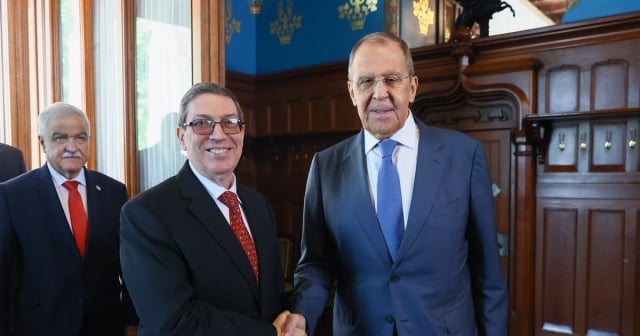The fleet of the Russian Navy, which includes a modern frigate and a nuclear-powered submarine, arrived in Havana on Wednesday morning as part of a scheduled visit that has generated great anticipation due to its geopolitical significance.
The oil tanker from the Pashin fleet led the flotilla and began its entry into Havana Bay shortly after seven in the morning, with Cuban technical support.
Next, the salvage tug Nikolai Chiker (SB-131), from the naval group of the Northern Fleet, made its entrance.
In third place, the frigate "Admiral Gorshkov" entered the harbor of Havana, a ship that leads the group of the Navy of the Russian Federation that from today begins an official visit to the island that will extend until June 17th.
Finally, the Kazan nuclear-powered submarine entered the Bay.
"Arriving now at the port of Havana, a rescue tugboat and a Russian icebreaker (not particularly useful for Cuba in June)," joked journalist Patrick Oppmann, CNN correspondent in Havana, on social media.
After the arrival of the impressive ships in the Havana bay, the photos taken by press agencies and by Cubans who have approached the Havana port have multiplied, so as not to miss the event, as it used to happen in the past with cruises coming from the United States.
Diplomatic personnel and Russian tourists visiting the island also did not want to miss the display of their country's power in Cuban waters.
In the last few hours, the United States government deployed several warships and an underwater reconnaissance aircraft to track the course of the Russian fleet.
The Ministry of Foreign Affairs (MINREX) of Cuba announced last week the arrival in Havana, for an "official visit," of several ships from the Russian Navy, including a nuclear-powered submarine.
Between June 12 and 17, 2024, an official visit to the port of Havana will be conducted by a naval detachment from the Russian Federation, composed of four vessels: the frigate 'Gorshkov', the nuclear-powered submarine 'Kazan', the fleet oiler 'Pashin', and the salvage tug 'Nikolai Chiker', as announced by MINREX last Thursday in a statement.
The official statement added that the visit is in line "with the historic friendly relations between Cuba and the Russian Federation," and that it "strictly adheres to the international regulations of which Cuba is a State party."
The MINREX specified that none of the vessels carries nuclear weapons and that their stopover in the country does not pose a threat to the region.
Subsequently, the United States government said to be aware of the Russian combat vessels, which are expected to arrive in Cuba and the Caribbean for a military exercise.
The same source said that this summer Russia will carry out intense naval and air activity in the Caribbean, near the United States, and that the actions will culminate with a global Russian naval exercise in the fall. However, the Biden administration said they did not view the deployment with alarm, as Russia has annually sent ships to the Western Hemisphere from 2013 to 2020.
They state that “Russia's deployments are part of routine naval activity,” and that they do not worry the U.S. government “since they do not pose a direct threat to the United States.”
The Cuban-American senator Marco Rubio, for his part, asked President Joe Biden not to stand idly by, and pointed out that there hasn't been a Russian submarine with nuclear-capable missiles operating in the Caribbean for over 30 years.
What do you think?
VIEW COMMENTS (2)Filed under:
